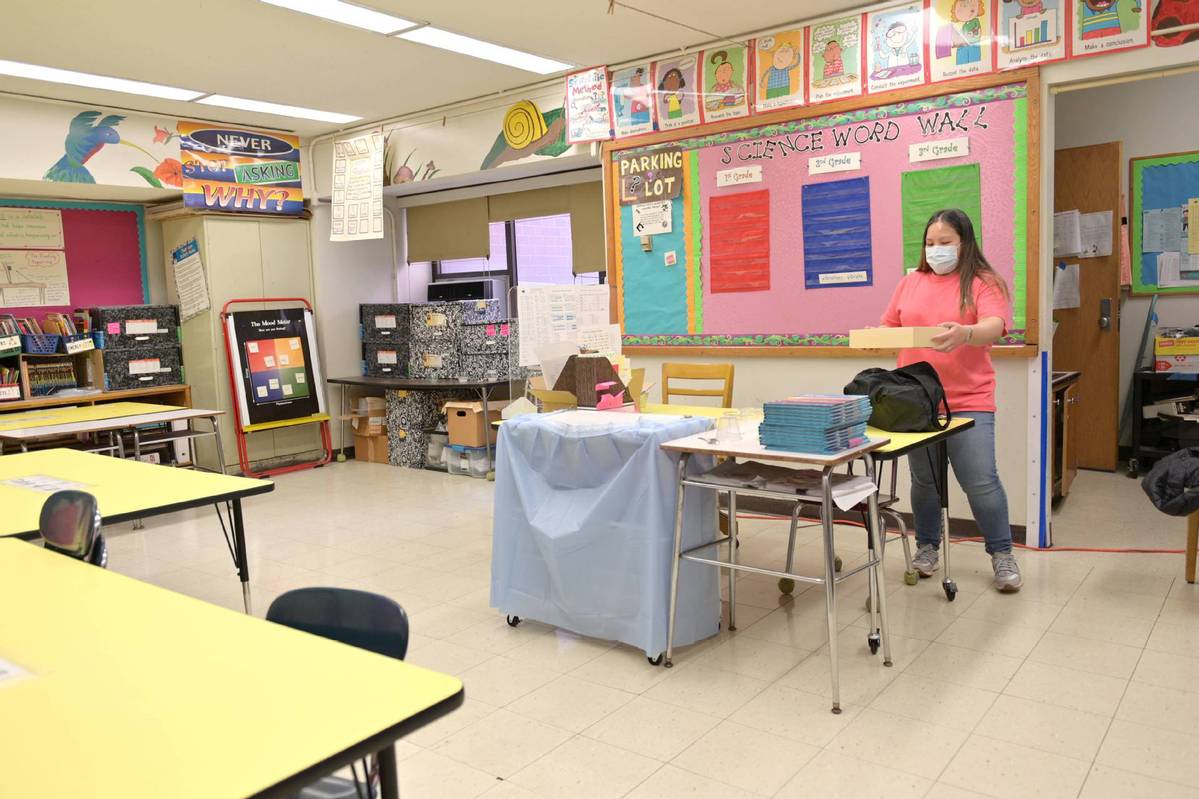Mental health spurs push to reopen schools
By MAY ZHOU in Houston | chinadaily.com.cn | Updated: 2020-12-04 12:30

Laura Chu is worried about her 11-year-old daughter who has been staying at home to learn remotely. The girl hasn't seen her school building since Houston's citywide lockdown began in mid-March due to the coronavirus.
"Besides schoolwork and online classes, most of her time is spent online playing games or watching others playing games," said Chu. "Lately, sometimes she speaks with nameless anger and uses curse words. This is something new with her."
Chu found some paintings her daughter drew during the pandemic: a skeleton head; one gigantic eye staring out solemnly; and a lonely figure looking out of the window wistfully.
The images bothered her: "They are definitely not expressions of happiness. She is less cheerful than before the pandemic."
Chu is not alone. A new survey by Nationwide Children's Hospital found two-thirds of parents worry about the effects of the pandemic on their children's mental health and that it will be more challenging to recover the longer it continues.
Children's mental health problems have been on the rise since the pandemic started. A recent study by the Centers for Disease Control and Prevention (CDC) showed that mental health-related visits to hospital emergency rooms by children and adolescents were up from April to October.
The study, published in mid-November, found that such visits were up 24 percent for children aged 5 to 11 and 31 percent for children aged 12 to 17, compared with the same time period last year. The data include a subset of hospitals in 47 states.
The highest weekly proportion of mental health-related emergency visits occurred during October for children aged 5-11 (Week 42; 1,177 per 100,000) and during April for adolescents aged 12-17 (Week 16; 4,758 per 100,000).
The findings add to existing research suggesting that COVID-19 has had a negative impact on children's mental health.
A study published by the National Center for Biotechnology Information analyzed 80 studies on isolation and mental health for children and concluded that children and adolescents are probably more likely to experience high rates of depression and anxiety during and after enforced isolation ends.
Even before the coronavirus hit, mental health problems such as depression and anxiety were on the rise in children ages 6 to 17, according to the CDC. And with schools closed, many students have struggled with pandemic-related isolation and stress.
Jeremy Esposito, a doctor in the emergency room at the Children's Hospital of Philadelphia, said the CDC findings reflect the distress children experience without school activities that leaves them socially isolated.
"Patients and parents already dealt with barriers to accessing mental health before COVID-19, such as stigma, concerns for the cost of mental health care, lack of insurance, transportation barriers and shortage of providers. COVID-19 may have compounded those barriers as mental health services have had to adapt," he told The Seattle Times.
There is an emerging consensus that when it comes to COVID-19, in-person teaching with young children is safer than with older children and very crucial for their development.
Children in the 5-17 age group account for 8.4 percent of US coronavirus cases and 0.1 percent of the deaths, according to the CDC website. The corresponding rates for preschool-age children are lower.
Weighed against the substantial harm to children by keeping schools closed, elementary schools should offer in-person learning, Dr David Rubin, a pediatrician and infectious disease experts at the University of Pennsylvania, told The New York Times.
"I think there's a pretty good base of evidence now that schools can open safely in the presence of strong safety plans and even at higher levels of case incidence than we had suspected," he said.
On Nov 19, the governors of six Northeast states — Pennsylvania, New Jersey, New York, Massachusetts, Connecticut and Delaware — released a joint statement about the importance of in-person education. It asserted that "in-person learning is safe when the appropriate conditions are in place, even in communities with high transmission rate".
"In-person learning is the best possible scenario for children, especially those with special needs and from low-income families," the statement read. "There is also growing evidence that the more time children spend outside of school increases the risk of mental health harm and affects their ability to truly learn."
That consensus has been reflected in policy change. For example, New York City Mayor Bill de Blasio announced last week that elementary schools and some schools for children with complex disabilities will reopen on Dec 7 after all city classrooms were shut down in November.
























